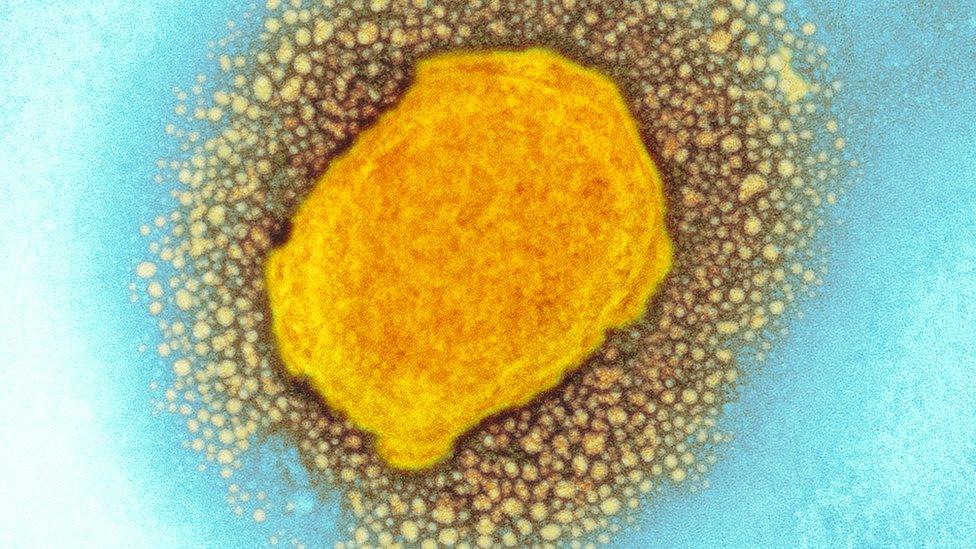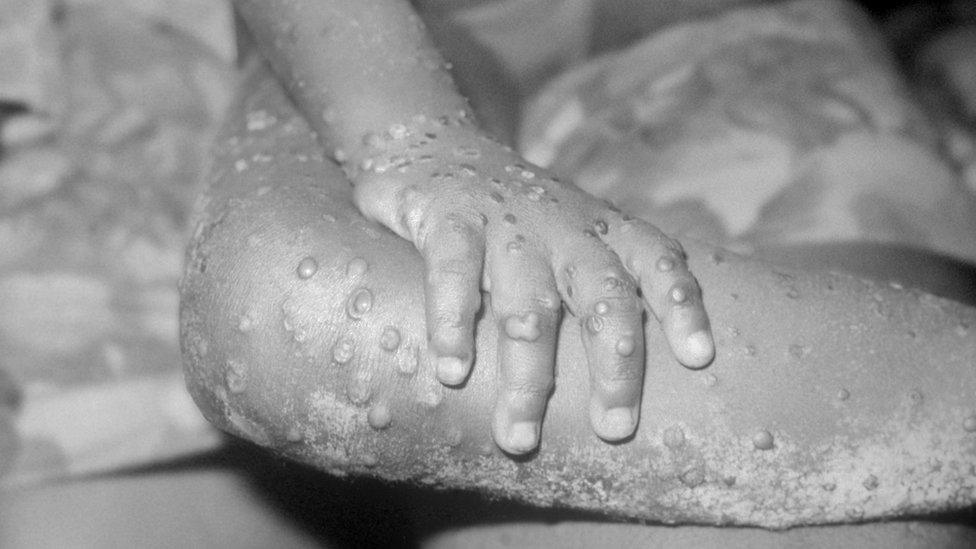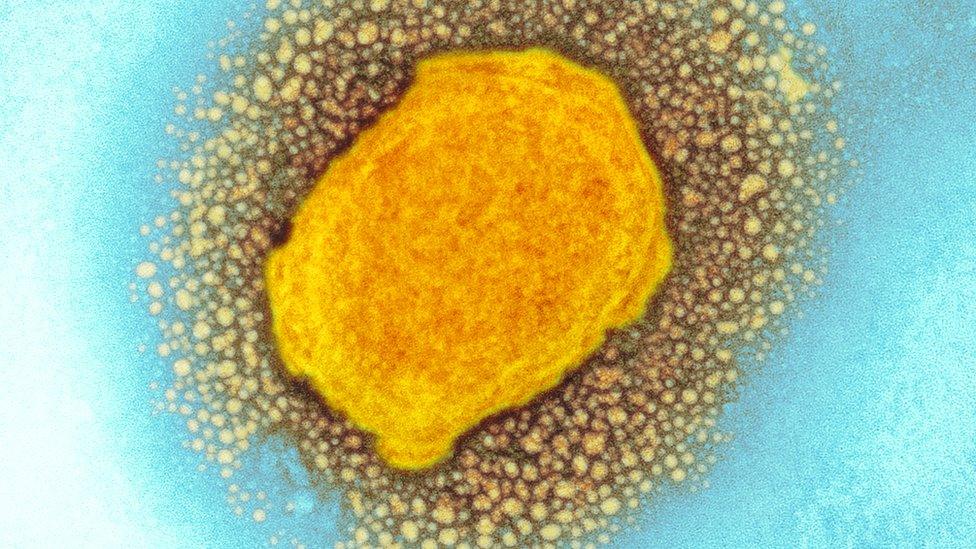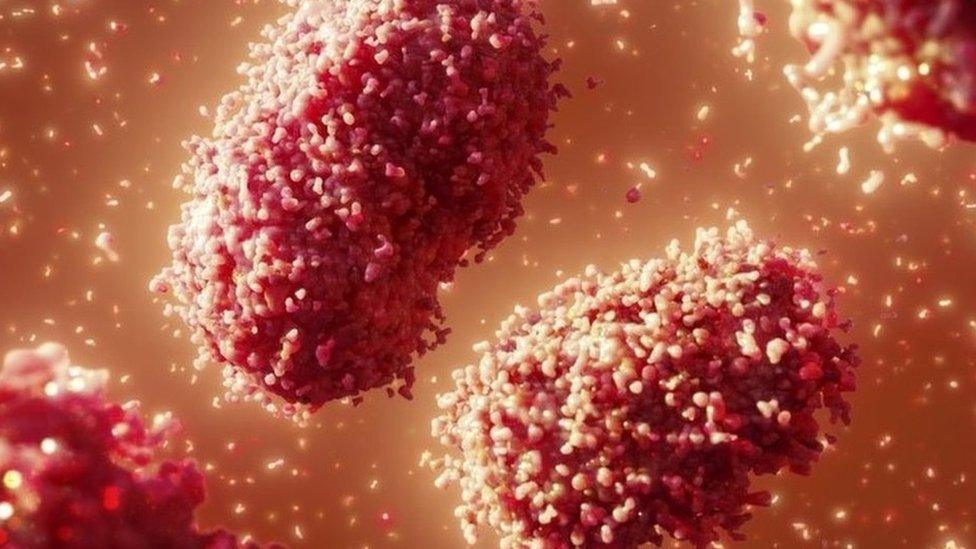Monkeypox: Two more confirmed cases of viral infection
- Published

The individuals live together but are not linked to the case announced on 7 May, according to the UK Health Security Agency
Two more people have been diagnosed with monkeypox in England, the UK Health Security Agency said.
The individuals live together in the same household but are not linked to the previous case announced on 7 May.
Of the two new cases, one was receiving care at St Mary's Hospital in London and the other was isolating, the agency said.
Monkeypox is a rare viral infection from which most people recover in a few weeks, according to the NHS.

Symptoms of monkeypox include a rash, fever, headache, muscle aches, backache, swollen lymph nodes, chills and exhaustion
The UK Health Security Agency (UKHSA) announced on 7 May that a person who had recently travelled to Nigeria had contracted the infection.
It was believed they contracted the illness in Nigeria before travelling to the UK.
They were being treated at the Guy's and St Thomas' NHS Foundation Trust in London, the agency said.
Dr Colin Brown, director of clinical and emerging infection at the UKHSA, said the two new monkeypox cases were not linked to the case announced on 7 May.
"While investigations remain ongoing to determine the source of infection, it is important to emphasise it does not spread easily between people and requires close personal contact with an infected symptomatic person," he said.
"The overall risk to the general public remains very low."
Dr Brown said the agency was contacting "any potential friends, family or contacts in the community" as well as "healthcare contacts" of the two new cases.
Initial symptoms of monkeypox include fever, headache, aching muscles, backache, swollen lymph nodes, chills and exhaustion.
A rash can also develop, which usually starts on the face before spreading to other parts of the body. It eventually forms a scab which falls off.
The UKHSA says monkeypox does not spread easily and most patients recover within a few weeks, but it can cause severe illness in some people.

Follow BBC London on Facebook, external, Twitter , externaland Instagram, external. Send your story ideas to hellobbclondon@bbc.co.uk, external
- Published7 May 2022

- Published5 August 2022

- Published26 September 2018
